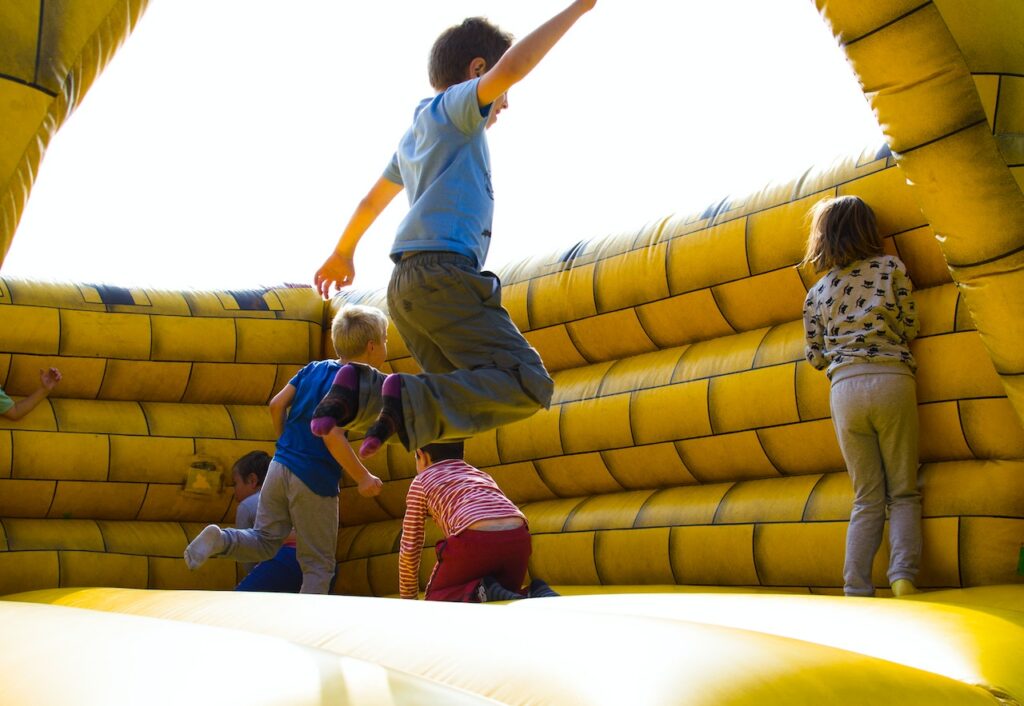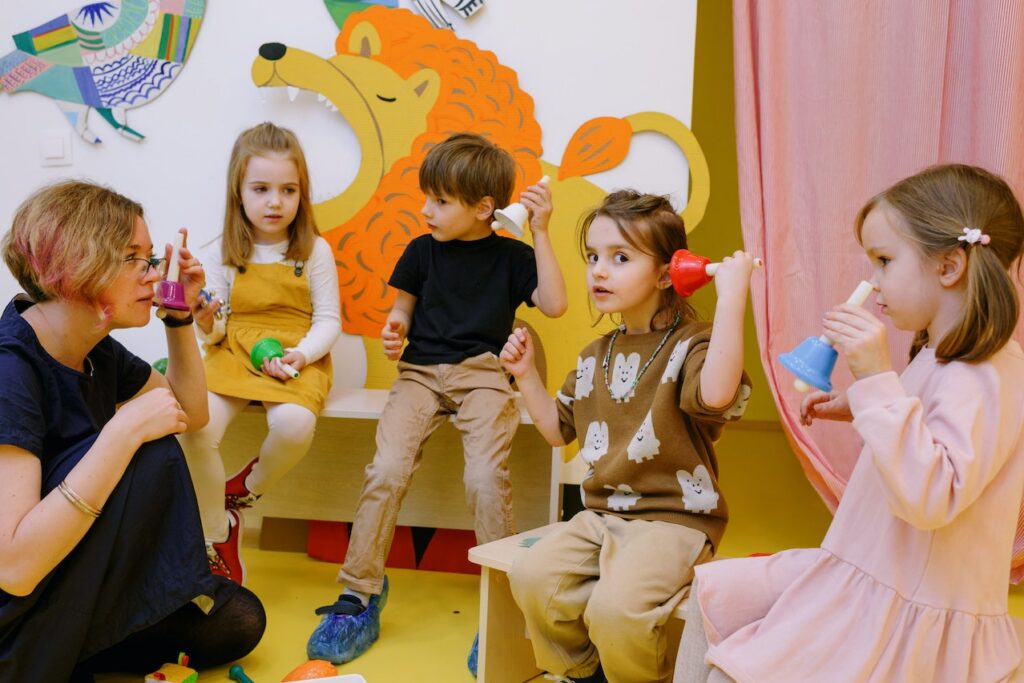One of the most valuable differences that divide humans from animals is humans’ ability to communicate and interact with others. So, communication and interaction are crucial for people’s life and well-being.
Parent’s role is to stimulate their little ones to communicate and interact from the very start when they’re babies and also as they grow and develop.
Parents can encourage social interaction in children starting from a young age by engaging them in the family bonding and creating friendships with other children their age.
Benefits of Social Interaction for Children

It can be very beneficial if you encourage social interaction in your children. The positive side of social interaction is huge, so in the following paragraphs, we’ll look at how encouraging social interaction improves your children’s cognitive, emotional, and behavioral skills.
Cognitive Benefits
Studies show that social interaction develops cognitive skills like thinking, speaking, creating opinions, and such in children. Social interaction shapes children’s personalities and helps in gaining self-esteem and confidence.
Emotional Benefits
Encouraging social interaction helps our little ones develop a healthy and honest complex of feelings. Children that often socialize show empathy for others and feel free to express their thoughts and emotions.
Behavioral Benefits
Kids’ social interaction improves their social development, personality, and behavior with others. Constant verbal communication provides our children the chance to learn and develop body language and also improves their vocabulary and creativity. With this knowledge, children can make friends easily and develop a respectful and helpful attitude.
How Does Social Interaction Help Children Learn Important Life Skills?

Social interaction helps children learn important life skills in many ways, such as:
- Having an open conversation on various topics and evaluating the communication process;
- Building positive relationships with others;
- Sharing feelings, thoughts, and information;
- Accepting different personalities;
- Improving mental and emotional health;
Barriers to Social Interaction for Children

Children often are rejected because they are different from others. We, adults, must not allow this behavior. Some children are even bullied because of their different personalities. Studies show that about 20% of children have been bullied at least once in their lifetime. Rejection and bullying can often lead to barriers in social interactions, such as:
- Fear of communication, shyness, avoiding eye contact, emotional immaturity;
- Some children have trouble with a language if they’ve moved to another country, which is also a barrier;
- Some children want to be left alone and don’t want to communicate (usually talk to themselves or with toys);
- Religion and cultural barriers;
- Discrimination;
These barriers can lead to a lack of social interaction in children, which is bad and has its own negative effects.
Limited social interaction affects our little ones’ physical and mental health because of isolation and loneliness. This causes a lack of self-esteem and personality value, depression, and social anxiety.
Strategies for Encouraging Social Interaction for Children

As we parents are aware of and value the positive effect of social interaction for our kids, we should develop different strategies that include activities in the home, and also in the community.
In the Home
Our home is the best place where our kids can practice communication and interaction from an early age by:
- Playing games and interacting with other family members
- Family moments and gatherings build strong interpersonal relationships, confidence, and trust.
Promoting face-to-face communication instead of screen time helps us parents to maintain a neverending conversation with our little ones, and we can become kids again too!
In the Community
Being a valued community member develops children’s social skills in many ways. Firstly, active participation in community events and activities helps our kids to overcome the shyness and fear of communication and improves empathy by connecting with people with different personalities.
Moreover, volunteering and engaging in community service can help children build humane feelings and encourage them to do good things.
Last but not least, joining community clubs and organizations is always a great way for your children to kick-start their social interactions.
At School
A school classroom is a place where kids need to communicate and interact together. So, we parents need to encourage our children to interact with their classmates and friends.
Firstly, a classroom is a place where children can develop skills by playing games with their friends and classmates. Also, communication with teachers is important for children’s social skills development.
Moreover, kids can participate in extracurricular activities and clubs and improve their social interaction, meet new people, and also embrace their creativity.
Last but not least, schools and teachers themselves often encourage social interaction by organizing school projects that demand the active participation of students.
Challenges and How to Overcome Them
Not every child likes to socialize, and that’s a fact. Many parents face challenges when encouraging social interaction in children, such as disinterest in social interaction, isolation, and shyness.
The best way to overcome these challenges is by first creating a positive home atmosphere. Then you can see what your children are interested in and sign the up for various clubs and activities where they can meet children with similar interests!
Conclusion
As we can see kids’ social interaction plays a huge role in their development, so our role as parents is to encourage our kids to communicate.
Motivate your kids to develop social and interactive skills at home, at school, community, and never be scared of face-to-face interaction. Self-confidence is stronger when it is shared with another person.
FAQ
What if my child is shy and reluctant to socialize?
You can try signing up your child for clubs and activities that interest them, or encourage them to make friends with others by organizing play-dates and such.
What if my child is being bullied and doesn’t want to interact with others?
Kids being bullied at school is the worst challenge that parents can face. Parents must work together with teachers and school psychologists to help kids overcome the fear of communication because of bullying and bring measures for the bullies.
How can I help my child make friends if we’ve recently moved to a new area?
A new start is always an excellent way to make friends. You can include them in community activities, introduce yourself to your neighbors and their kids, and organize neighborhood picnics.
What if my child prefers to spend time alone?
Isolation is not a good option. You can convince your kid to, go for a walk, read a book, or play a video game together (kids always accept that).
Is it possible to encourage social interaction while still respecting my child’s boundaries?
Of course! There are always children that have similar interests to your child.







